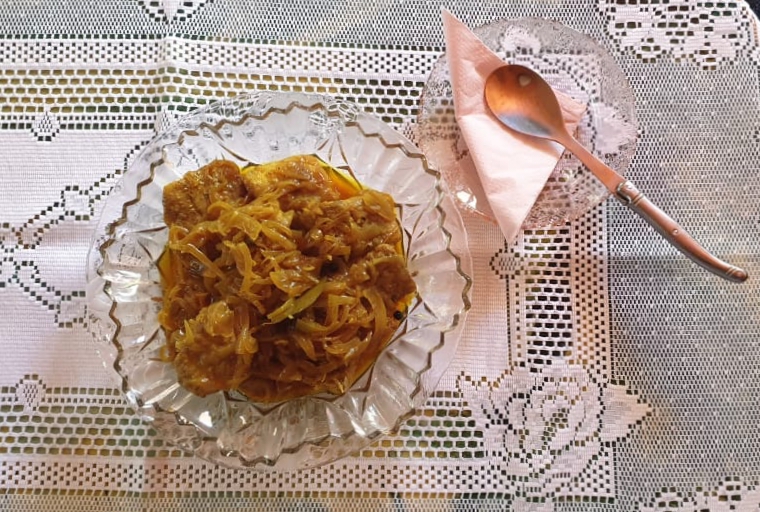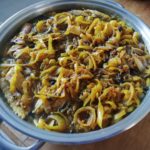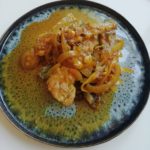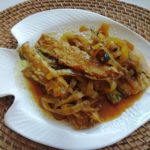A few weeks ago I was meant to be on a road trip, doing research with colleagues from the University of Pretoria, and the USA and Denmark, around the theme of Food as Heritage & Archive. Due to COVID-19 our trip has been postponed indefinitely.
Preparations for the trip stirred up many memories, though, since food is so intimately wrapped up in my sense of community – memories of celebrations and funerals where everyone would rally together in support of their neighbour, bringing a plate of something or offering to cook a pot of food. After the gathering everyone would leave with a barakat, or blessing, in the form of a plate of leftovers. Traditions such as these hark back to a time when the enslaved would come together, bringing what little they had to share with one another. Later, during apartheid, celebrations with laden tables were also a way of demonstrating respectability in a society where people had little control over anything outside the domestic sphere.
One of our aims with this project is to look at the food practices that transcend lines of language, religion and economic status. This immediately got me thinking about a dish that seems to embody the history and heritage of the Cape – a uniquely South African dish – the pickled fish, or ingelegde vis, that my grandmothers, one Muslim and the other Christian, would make every Easter. Explanations for the origin of the dish abound, but it seems to have originated in the Cape during colonial times.
Pickling as a way of preserving the fish, possibly came from the Dutch tradition of pickling herring, and would have been enhanced by liberal additions of spices by the enslaved cooks at the Cape. My grandmothers would start the process the week before Good Friday. There would be no fishing boats going out over the Easter weekend so the fish would have had to be bought in advance, either directly off the boats in Kalk Bay harbour or from the fish market on the corner of Hanover and Clifton Street. I remember the merchant, with horse and cart, who hawked his wares through the neighbourhood, blowing his horn to alert our mothers and grandmothers.
The best fish to use was geelbek, kabeljou or yellow tail. Making the dish in advance meant that the fish was able to absorb the turmeric, cloves, chilli and all spice. Enough fish was pickled to last all weekend. This freed up time for my maternal grandmother to spend three hours in church on Good Friday, since she didn’t have to cook. Muslim families would take advantage of the time off to go on picnics, to visit kramats, with an ample supply of padkos (road food) since there would be nowhere to stop and eat along the way since restaurants would have been limited to those catering for “whites only”.
The rituals around food preparation and the coming together to share it, are examples of the everyday practices of what it means to be human, in spite of living through oppression. In the absence of recorded history, they offer alternative ways of remembering how people survived, in the same way that photographs, storytelling and music does.
This year, Easter falls at the beginning of the third week of a national lock down in South Africa, but I do know that mom (whose pickled fish is the featured image) and my friend, Jen (who sent me the three photographs above) have both been making pickled fish, using the recipes that their mothers and grandmothers handed down. I’m sure many others across the country have managed to do the same and, while I might be missing out on actually eating it, I feel part of the virtual community who is sharing in the tradition.
PHOTOGRAPHS: Reza Kamies and Jennifer Hardisty



